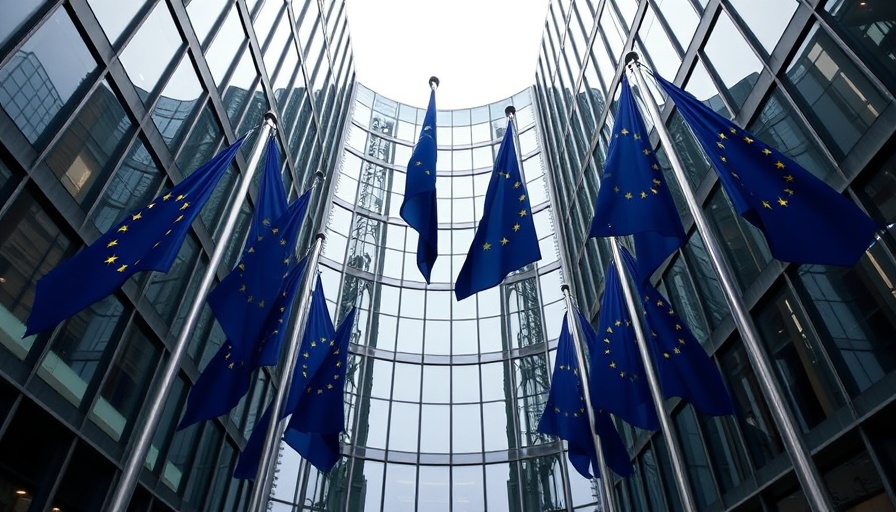
European Commission's Bold Move Toward Fleet Electrification
The European Commission has recently unveiled an electrification action plan saluting a crucial shift towards green transportation. This draft proposal centers on electrifying corporate fleets throughout the EU, an essential strategy that could not only accelerate the adoption of electric vehicles (EVs) but also provide potential relief from decarbonization penalties for companies.
Fleets: The Catalyst for EV Sales Growth
Current statistics indicate that nearly 60% of new cars registered within the EU are corporate vehicles. With the European Commission's proposed regulations seeking to require large companies to only purchase zero-emission vehicles (ZEVs) from 2030, we could witness a pivotal increase in EV sales, stimulating demand beyond the private consumer segment.
According to insights from Transport & Environment, this plan is projected to deliver more than 2.1 million EV sales by 2030 from European manufacturers, contributing significantly to their efforts to meet stringent CO₂ emission guidelines. The implications of such a shift are monumental, aligning with broader EU goals of decarbonizing road transport.
Benefits for Car Manufacturers
The electrification initiative isn't merely beneficial from an environmental standpoint; it holds the potential for substantial economic advantages for EU carmakers. These manufacturers traditionally enjoy a stronger foothold in the corporate sector, with 62% of their car sales going to fleets, compared to only 49% for non-EU competitors. As major corporations transition to electric fleets, the domestic automotive industry's growth is expected to follow suit, supported by regulatory momentum.
Enhancing the Used EV Market
Furthermore, the proposed regulations are likely to give rise to a booming second-hand market for used electric vehicles. As fleets upgrade and replace their vehicles after three to four years, millions of ex-fleet EVs are forecasted to flood the used car market by 2035. This influx could provide affordable options for families looking to purchase used cars, making EV ownership more attainable.
Implications for Car Dealerships
For dealership principals and GMs, these developments underline a transformative opportunity. By preparing for the expected increase in demand for used EVs, dealerships can strategically position themselves to accommodate changing consumer preferences. This includes understanding evolving financing rates, which are becoming increasingly relevant in discussions around vehicle ownership. Knowledge of best used car financing rates and loan options will be vital as the market landscape shifts.
Looking Ahead: The Road to Electrification
The EU's commitment to electrification through regulatory action reflects a larger trend towards sustainable practices across the automotive industry. As car manufacturers pivot towards EV production, dealerships must also adapt, ensuring they can provide not only new electric models but also a well-supported used vehicle market.
The future of vehicle purchasing is undeniably heading towards electrification, and the time to act is now. Ensuring that your dealership is fully integrated into this transition will position you at the forefront of the automotive industry.
 Add Row
Add Row  Add
Add 




Write A Comment